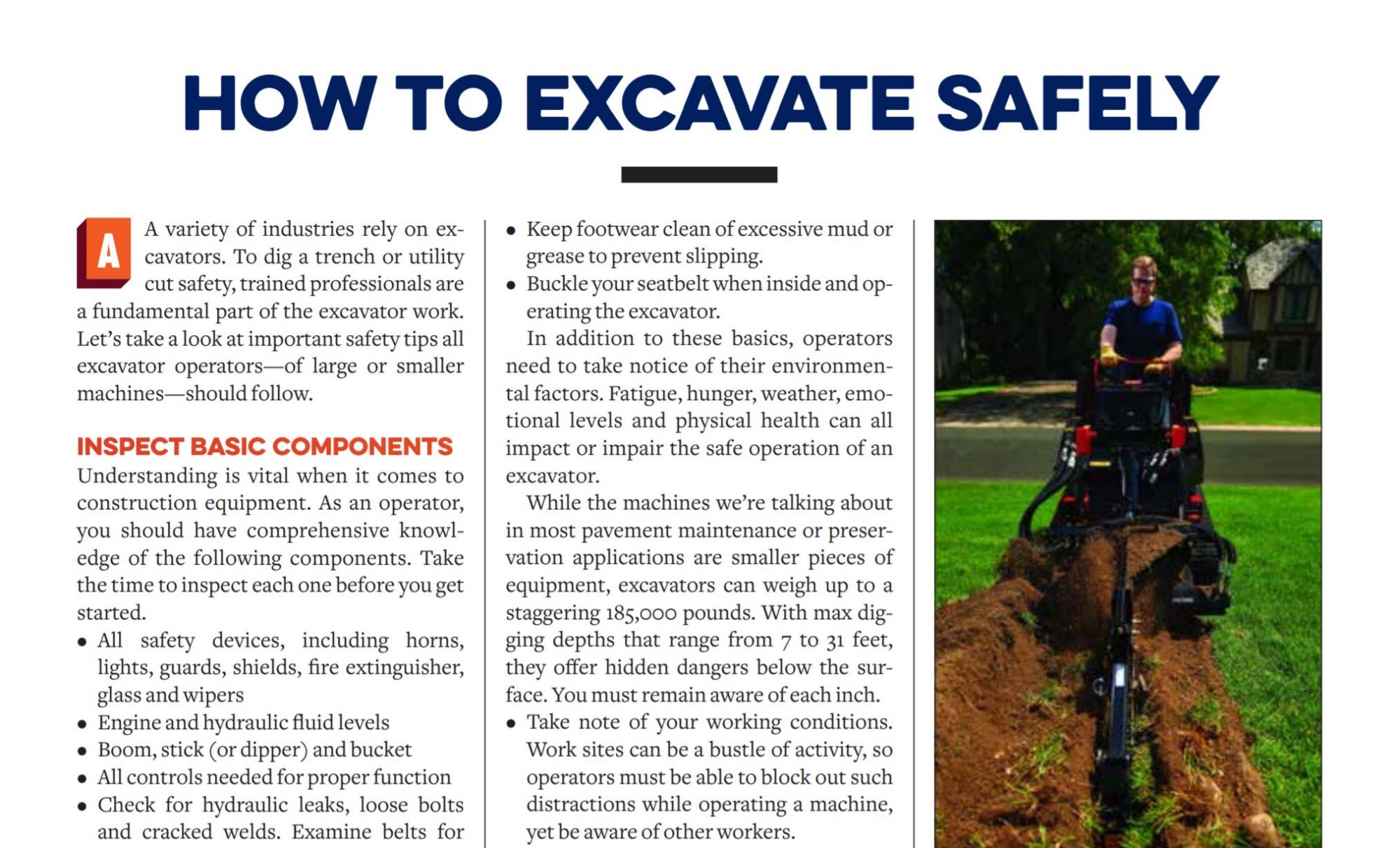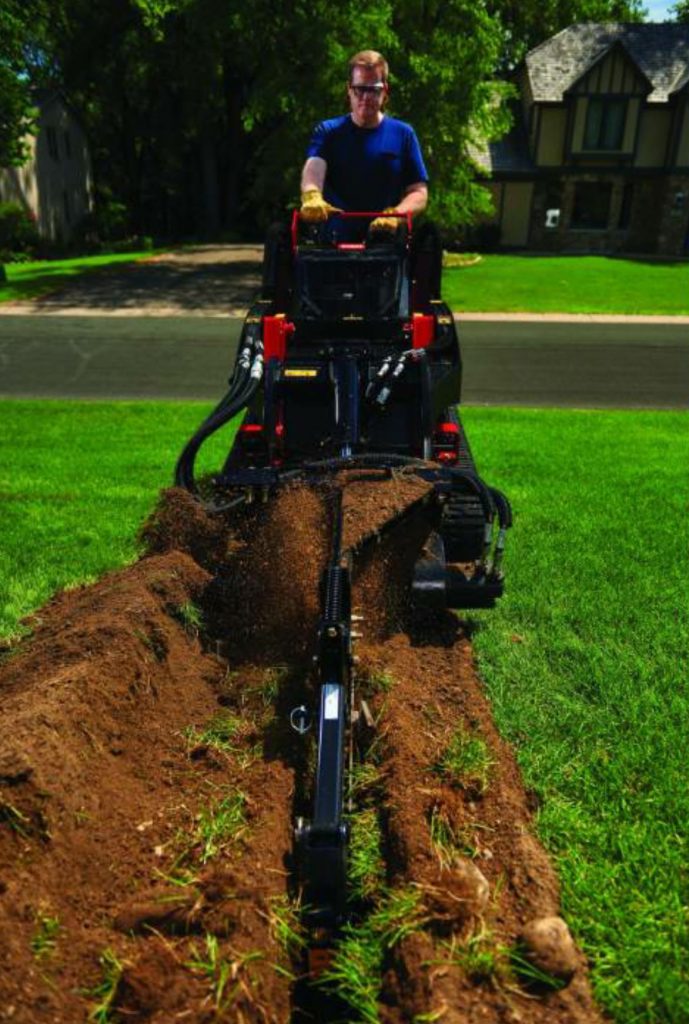How to Excavate Safely
BY Doug Miller

A variety of industries rely on excavators. To dig a trench or utility cut safety, trained professionals are a fundamental part of the excavator work. Let’s take a look at important safety tips all excavator operators—of large or smaller machines—should follow.

Whether it’s an attachment or a full-fledged excavator, tools for digging and trenching require safe operation, as illustrated here with this Toro Dingo TX 1000 compact utility loader. Photo courtesy Performance Marketing.
Inspect Basic Components
Understanding is vital when it comes to construction equipment. As an operator, you should have comprehensive knowledge of the following components. Take the time to inspect each one before you get started.
• All safety devices, including horns, lights, guards, shields, fire extinguisher, glass and wipers
• Engine and hydraulic fluid levels
• Boom, stick (or dipper) and bucket
• All controls needed for proper function
• Check for hydraulic leaks, loose bolts and cracked welds. Examine belts for proper tension and wear, radiator hoses for cracks, and the drive sprocket for work or cracked teeth. More thorough inspections should be don eon a more periodic basis, such as once a month.
Operator’s Responsibilities
Safety goes beyond physical inspections; only by taking the proper care in our actions can excavators reduce their risk of injuring themselves or others.
• Keep the cab clean of dirt, grease and objects which could interfere with its safe operation.
• Clean the glass of the cab regularly to increase visibility and to avoid glare.
• Test each control before beginning work to ensure they’re all functioning correctly.
• Grease the bucket hinge pins as needed; this is dependent on weather conditions and the type of material being excavated. For example, sandy or powdery materials may require two to three greasings per shift.
• When climbing into or out of the cab, use the standard three-points-of-contact method. Always enter and exit while facing the machine. Do not jump out.
• Keep footwear clean of excessive mud or grease to prevent slipping.
• Buckle your seatbelt when inside and operating the excavator.
In addition to these basics, operators need to take notice of their environmental factors. Fatigue, hunger, weather, emotional levels and physical health can all impact or impair the safe operation of an excavator.
While the machines we’re talking about in most pavement maintenance or preservation applications are smaller pieces of equipment, excavators can weigh up to a staggering 185,000 pounds. With max digging depths that range from 7 to 31 feet, they offer hidden dangers below the surface. You must remain aware of each inch.
• Take note of your working conditions. Work sites can be a bustle of activity, so operators must be able to block out such distractions while operating a machine, yet be aware of other workers.
• Be aware of other workers: access to the job site by unauthorized persons needs to be controlled. Barricades should be placed to notify others where the safe and unsafe zones are.
• Make sure you know where power line and other utilities are located before you start to dig. Most areas have a one-call number, which will contact local utility companies in your location to delineate dangers.
Making a mistake or skipping the above steps can be deadly, given the right circumstances.
Excavating
Excavators are designed to dig holes and move earth. These tips regarding the act itself will make sure no imbalances or cave-ins occur.
• Material excavated from a trench should be placed a minimum of 2 feet from its edge, although distance may need to be greater depending on soil type. Make sure the slope of the soil pile is flat enough to prevent material from sliding back into the trench.
• Beware of undercutting. The operator must always be aware of where the machine is in relation to the edge of the excavation. As a safeguard against cave-ins, your excavator’s tracks should be perpendicular to the trench.
• Know the load limits of your machine. Overloading the bucket with too much material can cause the excavator to tip over or become otherwise unstable. Never exceed the capacity laid out in the load chart at any time, for any reason.
At the end of the day, the best safety feature on an excavator is its operator. You have the ability to pay attention to each component and ensure it is in good health, and you are capable of maintaining certain standards that mitigate the risks of the job. As long as you’re attentive and committed to following proper safety procedures, your days of digging can be accident-free.
Doug Miller is the owner of Mini Final Drives, Salisbury, North Carolina.
